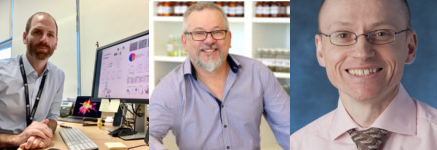Thanks to you, a research revolution has begun
One of the most exciting and revolutionary blood cancer trials has launched in Australia, all thanks to your generosity.
In an overwhelming display of care for Australians with high-risk blood cancers, generous supporters like you have enabled work to begin on an incredibly important trial, the Blood Cancer Genomics Trial (known as MoST-LLy).
This first-of-its-kind trial hopes to pave the way for a new approach to treating blood cancer, by looking at the genomic profile of someone’s blood cancer to help provide personalised, targeted treatments.
It’s hoped this will result in improved survival, fewer side effects and greater quality of life for Australians with high-risk blood cancers.
With the first patients now starting to take part in the trial, we look forward to keeping you up to date as the trial progresses.
“To reduce blood cancer mortality in this country, we must shift our focus away from treating blood cancer subtypes with a ‘one size fits all’ approach and towards targeted therapies.”
- Chris Tanti, Leukaemia Foundation CEO
A ground-breaking trial
Can we better match treatments to a person’s individual blood cancer, based on their cancer’s genomic profile?
Researchers in the Blood Cancer Genomics Trial (MoST-LLy) are working precisely on this idea – with the hope that their research could help transform the way Australians with blood cancer are treated.
This targeted approach to treating blood cancer is called precision medicine. Through this ground-breaking research program, Australians who have relapsed or failed to respond to treatment will undergo a genomic screen to potentially match them to precision medicines best suited to treating their specific cancer.
It could even mean that a patient with leukaemia could receive a treatment that is being used or developed for another type of cancer, if their genomic profile indicates that treatment will be more effective.
Importantly, this trial will give fresh hope to Australians with blood cancer who have run out of options. This means that your generosity will help to save lives.
Understanding genomic testing
How does genomic testing and precision medicine work?
| We all have genes, the blueprint for our bodies. They are what makes everybody unique. Genes encode everything about us, like our hair colour and height. | 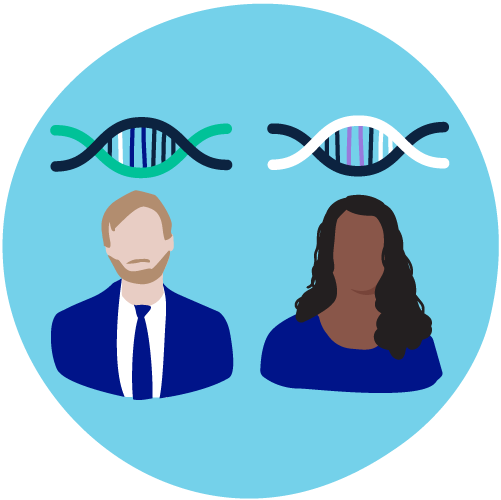 |
|---|---|
| When all of your genes are put together, it’s called your genome. Imagine your genes being pages in a book, and all the books in your body’s library making up your genome. | 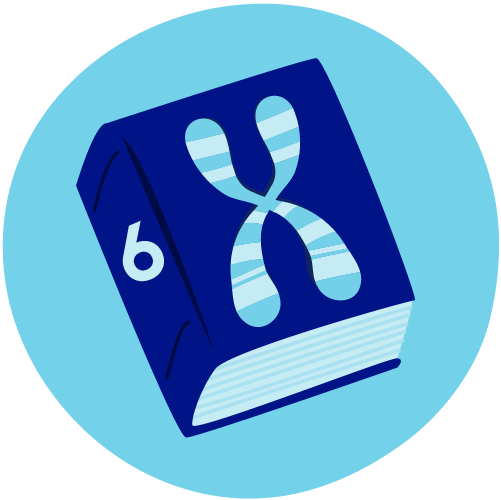 |
| When scientists study your genome, it’s called “genomics”. This allows them to build a picture of what makes you…you! | 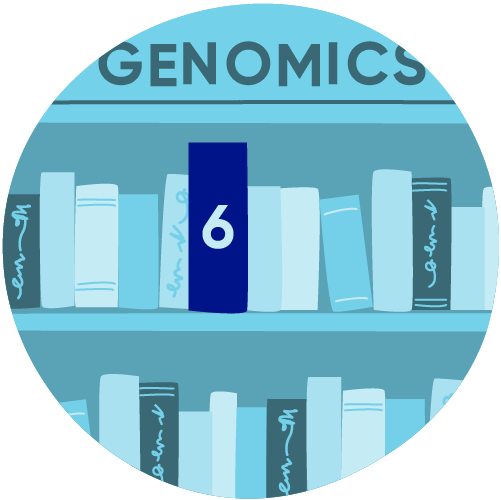 |
| Sometimes, changes in genes can change the way cells in our body behave. In some instances, this can lead to blood cancer developing. | 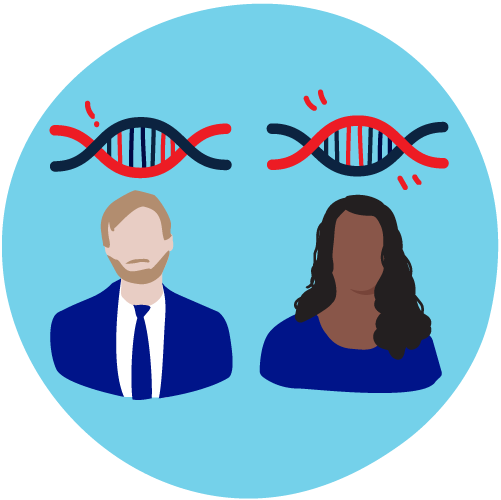 |
| Scientists can test the genome of someone’s blood cancer. This genomic testing allows them to build a genomic profile of the cancer. | 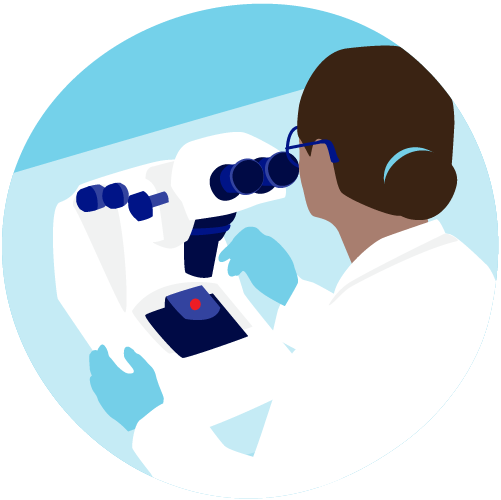 |
| With this profile, doctors can better understand someone’s individual disease and identify treatments to target their blood cancer. This is called precision medicine. | 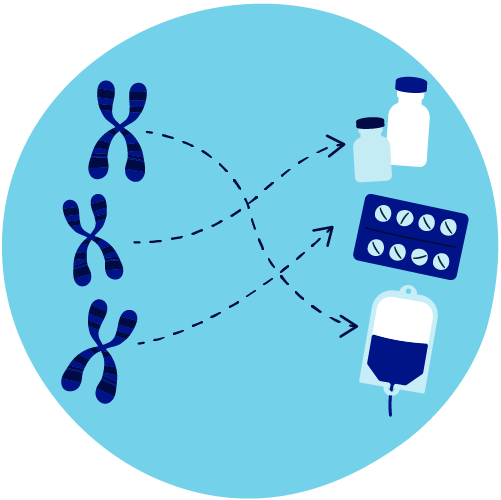 |
| And this means helping to match the right treatment to the right person. | 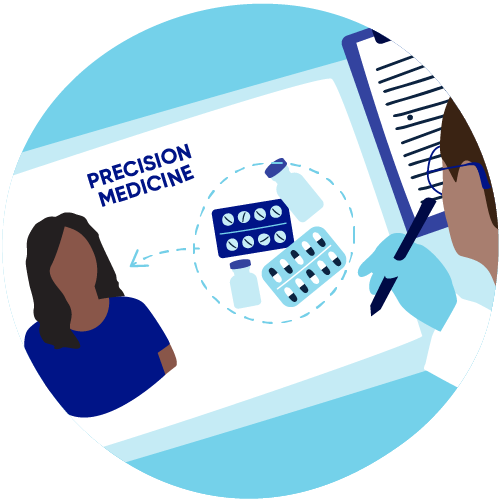 |
Where is the trial happening?
Excitingly, patients are already taking part in the trial at the Royal Brisbane and Women’s Hospital, together with the Royal Adelaide Hospital. There are also plans to expand the program to include patients in WA, NSW and Tasmania.
Australia’s brightest researchers on the case
This first ever genomics screening program for blood cancers in Australia is being led by a nationwide team of talented researchers.
“Importantly, findings through this program may improve patient outcomes and ultimately change the management of advanced blood cancers.”
– Professor Steven Lane (pictured)
The talented researchers on the job
- Professor Steven Lane, RBWH and QIMR Berghofer Clinical Lead of the blood cancer genomics trial, clinical lead Royal Brisbane and Women’s Hospital (pictured left, above)
- Professor Hamish Scott, SA Pathology Genomics Lead (pictured centre, above)
- Associate Professor David Ross, Royal Adelaide Hospital Clinical Lead (pictured right, above)
- Professor David Thomas, Garvan Institute of Medical Research Molecular Screening and Therapeutics Program (MoST) Lead
- Professor John Simes, NHMRC Clinical Trials Centre at the University of Sydney) Co-Chair of MoST
Thank you!
The Blood Cancer Genomics Trial is proudly co-funded by the Leukaemia Foundation and Tour de Cure.
The launch of this trial represents years of generosity from you, our wonderful supporters. Your donations have directly funded the establishment of this ground-breaking trial, getting it ready for the first patients to take part. You are helping to change lives, thank you!
Further information
If you have blood cancer and are interested in this trial, please discuss it with your haematologist. Further information is available on the Leukaemia Foundation website here.
Last updated on March 7th, 2022
Developed by the Leukaemia Foundation in consultation with people living with a blood cancer, Leukaemia Foundation support staff, haematology nursing staff and/or Australian clinical haematologists. This content is provided for information purposes only and we urge you to always seek advice from a registered health care professional for diagnosis, treatment and answers to your medical questions, including the suitability of a particular therapy, service, product or treatment in your circumstances. The Leukaemia Foundation shall not bear any liability for any person relying on the materials contained on this website.
